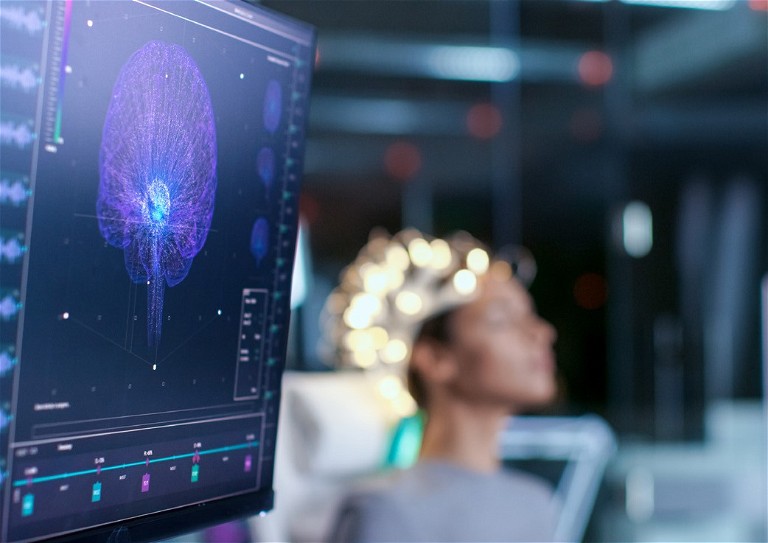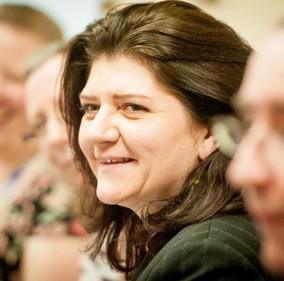EXCLUSIVE INTERVIEW
Supporting rare neurological disease patients during COVID-19
PHARMA FILES PEAKS TO The Brain Charity
The pandemic presented numerous challenges for those living with rare neurological diseases. Nanette Mellor, CEO of The Brain Charity, delves into the numerous ways in which the charity is continuing to provide assistance to patients, in areas extending from mental health to logistical support

Pharmafile: What are some of the ways in which The Brain Charity supports those with rare diseases?
Nanette Mellor: If you Google your very rare neurological disease, most likely The Brain Charity will be the listing that appears first.
One of the key things we do for clients is find them more information about their condition and what a diagnosis means for their life – from research papers, health documents, other charities etc. If your condition is very rare, there may not be a lot of information out there, so this might be difficult to find for yourself.
We also put people with rare diseases in touch with others with the same condition through social activities and support groups. Being around others in a similar situation means clients can offer each other practical advice on how they’ve coped with different challenges.
Each understand what the other is going through, and can offer a non-judgemental space for sharing.
“ If their disability is invisible, they can also feel stigma attached to that in terms of how they are treated, particularly when applying for welfare benefits ”
What are some of the biggest challenges faced by patients with rare neurological diseases?
While the diseases themselves are very different, we find there are several overarching themes in terms of the challenges people tend to face.
The first problem is that it’s very difficult for people to get a diagnosis, in some cases it takes years, and in that time frame, they may be given various misdiagnoses or even mistreatments. For this reason, The Brain Charity does offer expert legal advice for any clients who have struggled with misdiagnosis or medical negligence.
A lot of people struggle to get a diagnosis if their GP hasn’t come across someone with that very rare condition before. This can be very difficult for them to join the dots. If their symptoms seem confusing, they can be mistaken for being psychosomatic.
Another challenge is actually getting information. If they have a rare condition, the likelihood is less research happening into the treatment of their condition as less people are affected. There can also be very little available factual information about causes, symptoms, how it will affect them, which leads to feelings of bewilderment. If their disability is invisible, they can also feel stigma attached to that in terms of how they are treated, particularly when applying for welfare benefits.
It can also be difficult for people with rare neurological diseases to find someone to talk to, who understands completely what they are going through. They may never meet someone with the same condition as them, face to face.
How was The Brain Charity impacted by the pandemic? What changes did this period bring about?
2020 was the most challenging year in The Brain Charity’s history for our clients. Throughout the pandemic, people with neurological conditions have remained some of the most vulnerable in our society, and in desperate need of support.
The Brain Charity finished 2020 having seen a rise of more than 50% in demand for our services compared to 2019. Long COVID-19, the rise in mental health problems due to the social isolation caused by the pandemic, and mass unemployment, means this is likely to increase further.
At the beginning of lockdown, the charity reached out to its most vulnerable service users to ask how they felt, how they were coping, and if they needed any extra assistance. Many people were shielding and unable to leave the house, and were struggling to access online food deliveries, which led to further anxiety. Others were worried about running out of money.
When our centre in Liverpool closed last March, we acted quickly to divert our resources to offer a new food delivery service. We then introduced a broader community service to help people shielding at home. This involved making trips to the shops, picking up prescriptions, keeping gas meters topped up, and even helping with vet visits for pets. Between March and August 2020, a team of 21 staff and volunteers delivered 1,104 food packs across Merseyside, helping an average of 58 people per week.
The Brain Charity also launched a telephone befriending service to combat loneliness, to ensure anyone left socially isolated by coronavirus could hear a friendly voice at the end of the phone, or via video call, each week. This is still running, and currently makes more than 50 hour-long calls per week.
The number of people coming to our counselling service at the point of suicidal thoughts has also risen by more than half over the last 12 months. We extended provision for our free counselling appointments so more people could be seen, giving clients the option to have a video or telephone appointment if they would prefer, and ensuring our building was COVID-19 safe for face-to-face appointments, too.
For many of our service users, The Brain Charity’s regular social events and activities were the highlight of their week, the chance to meet in a safe, welcoming space, free from judgement and discrimination. Moving these online allowed us to open classes and workshops which may previously have only happened in our centre to people as far afield as Newcastle, Scotland, and Cornwall.
Our two innovative community-based projects also pivoted to online video-based alternatives: ‘Music Makes Us!’ provides speech and language therapy via song, and physiotherapy via dance to people living with dementia, and The Brain Changer Arts Project provides physiotherapy via dance, and occupational therapy via arts and crafts to children with neurological conditions. This meant more people from across the UK were able to participate. Throughout the pandemic, all our practical help services offering advocacy, info, advice, and welfare benefits support, continued running remotely.

Nanette Mellor, CEO of The Brain Charity has dedicated her career to working for disabled people for over twenty years, and has experience in the field spanning the public, private, and third sector. Her previous role included national responsibility for the design and implementation of Mencap’s grassroots campaigning activity. In 2014, Nanette took up her first CEO role with The Brain Charity. She has recently been voted Social Leader of the Year at the English Woman of the Year Awards (North) 2018.